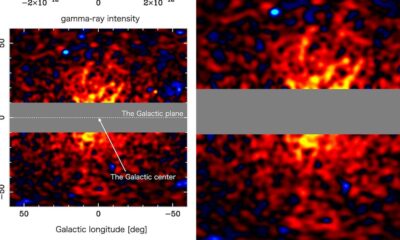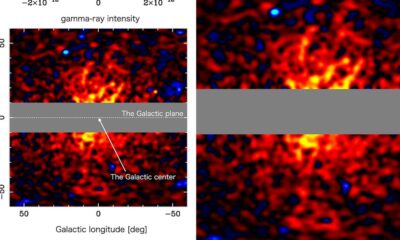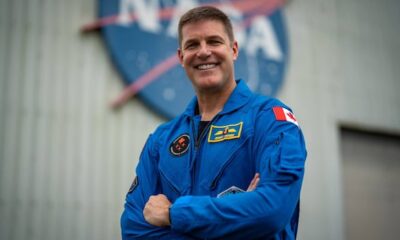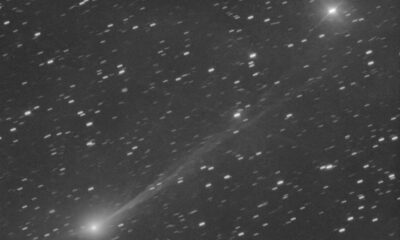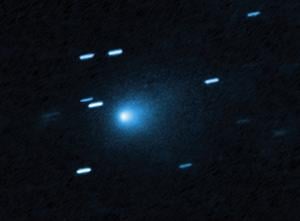Science
Spaceflight Accelerates Aging in Human Stem Cells, Study Reveals
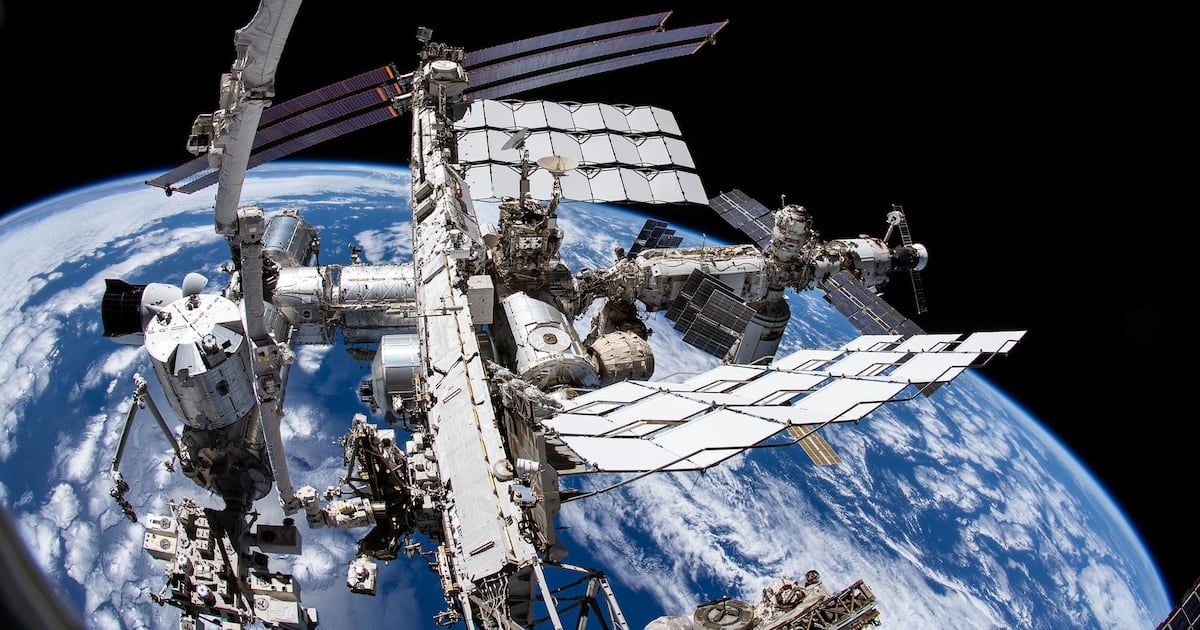
Research has revealed that spaceflight can significantly accelerate the aging process in human stem cells. Conducted by a team led by Catriona Jamieson, director of the Sanford Stem Cell Institute and professor of medicine at the University of California, San Diego, this study enhances our understanding of how prolonged exposure to microgravity and cosmic radiation affects the human body. The findings have important implications for long-term space missions as they indicate a decline in stem cell function.
The study, which received partial funding from NASA, was conducted during four resupply missions to the International Space Station (ISS) operated by SpaceX from late 2021 to early 2023. Published on March 15, 2024, in the journal Cell Stem Cell, it is the first to investigate stem cell behavior in real time under space conditions. Jamieson emphasized the significance of understanding stem cell health for astronaut health management, stating, “It’s important to study stem cell health and see who’s likely to be able to withstand the rigors of space.”
Impact of Microgravity on Stem Cells
The research focused on bone marrow stem cells donated by patients undergoing hip replacement surgery. These cells, crucial for maintaining a healthy immune system and blood production, were placed on sterile sponges within specially designed bioreactors aboard the ISS. An artificial intelligence system monitored the cells’ conditions constantly.
Jamieson noted that ideally, stem cells should remain inactive about 80 percent of the time to maintain their functionality. However, in the microgravity environment of space, these cells became overly active and thus functionally exhausted. “The stem cells woke up, and they didn’t go back to sleep, and they became functionally exhausted,” she said. This constant activity led to increased energy consumption and signs of accelerated aging.
Some stem cells were subjected to up to 45 days of spaceflight, and the researchers observed a reduction in their ability to generate new cells. Additionally, the study uncovered that stress conditions activated previously dormant regions of DNA, referred to as the “dark genome.” Jamieson explained, “Under conditions of stress, really strong stress, we activate these repetitive elements,” which can push stem cells into a “death spiral” of accelerated aging.
Implications for Astronaut Health and Cancer Research
These findings suggest that long-duration missions could weaken astronauts’ blood and immune systems, potentially increasing health risks. Arun Sharma, a stem cell biologist and associate professor of biomedical sciences at Cedars-Sinai Medical Center in California, indicated that the research could provide valuable insights into the aging process and aid the development of therapies to mitigate it.
The study highlights the potential health risks associated with long-range space expeditions, as Luis Villa-Diaz, an assistant professor at Oakland University, noted the strong evidence of the damage that microgravity and radiation can inflict on stem cells. “Knowing the potential negative effects that low Earth orbit has on (stem cell) aging and function gives us directions to address these issues,” he stated.
Interestingly, while previous research hinted at vulnerabilities in stem cells during space travel, Jamieson’s study provides clearer evidence of aging. Elena Kozlova, a professor at the University of Uppsala in Sweden, remarked that her own research has shown some early developmental stem cells exhibit increased growth in microgravity, suggesting that under certain conditions, spaceflight may even promote a youthful state in specific stem cell populations.
Looking ahead, Jamieson plans to conduct further studies to explore potential countermeasures against the aging effects observed in her research. “We can actually use these bioreactors, or avatars for stem cell health, to predict who’s likely to do well and who’s likely to do extremely badly in space,” she noted.
Preliminary results from a separate upcoming study suggest that stem cells can recover from accelerated aging once astronauts return to Earth, although this recovery may take around a year. The implications of this research extend beyond space exploration, potentially benefiting cancer patients as well, since their stem cells may exhibit similar stress-related damage.
Overall, these findings underscore the importance of understanding the effects of space travel on human biology. As space exploration continues to advance, insights gained from this research will be pivotal in ensuring the health and safety of astronauts during long-duration missions.
-

 Politics1 month ago
Politics1 month agoSecwepemc First Nation Seeks Aboriginal Title Over Kamloops Area
-

 World5 months ago
World5 months agoScientists Unearth Ancient Antarctic Ice to Unlock Climate Secrets
-

 Entertainment5 months ago
Entertainment5 months agoTrump and McCormick to Announce $70 Billion Energy Investments
-

 Science5 months ago
Science5 months agoFour Astronauts Return to Earth After International Space Station Mission
-

 Lifestyle5 months ago
Lifestyle5 months agoTransLink Launches Food Truck Program to Boost Revenue in Vancouver
-

 Technology3 months ago
Technology3 months agoApple Notes Enhances Functionality with Markdown Support in macOS 26
-

 Lifestyle3 months ago
Lifestyle3 months agoManitoba’s Burger Champion Shines Again Amid Dining Innovations
-

 Top Stories2 months ago
Top Stories2 months agoUrgent Update: Fatal Crash on Highway 99 Claims Life of Pitt Meadows Man
-

 Top Stories2 weeks ago
Top Stories2 weeks agoHomemade Houseboat ‘Neverlanding’ Captivates Lake Huron Voyagers
-

 Politics4 months ago
Politics4 months agoUkrainian Tennis Star Elina Svitolina Faces Death Threats Online
-

 Sports5 months ago
Sports5 months agoSearch Underway for Missing Hunter Amid Hokkaido Bear Emergency
-

 Politics5 months ago
Politics5 months agoCarney Engages First Nations Leaders at Development Law Summit



